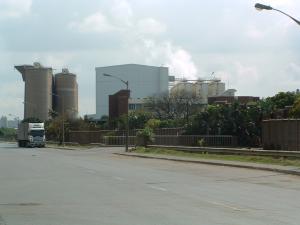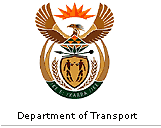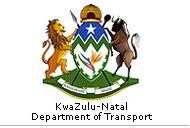 |
Brewers, Beverages and Liquor DistributionBrewersClear beer
The brewing of clear beer in KwaZulu-Natal is
confined
to Durban from where a large brewery supplies the entire
province and part of Eastern Cape by distribution to
depots in Pietermaritzburg, Empangeni, Ladysmith, Port
Shepstone, Butterworth and Umtata.
Beer is distributed by road. Brewers contract a range of
different transport operators to distribute their products,
usually in neutral liveries using brewery-owned trailers.
The input commodities to the brewing industry are malt,
barley, sugar, hops and local water. About 95% of the hops
are obtained from Blanco in the George area, with some
imports from Europe for specialty brands. Some product is received from the Krugersdorp area, while
a further small amount of clear beer is imported from
Namibia and Europe, and is distributed throughout KwaZulu-
Natal.
The estimated volume of clear beer brewed and distributed
in Kwa
Zulu-Natal amounts to approximately 1.5 million tons per
annum. Traditional (Sorghum) beer
Traditional (sorghum) beer is brewed in Durban and
Dundee. The breweries have a system of satellite depots
covering KZN, Transkei and Zululand.
The main inputs to the brewing process are maize powder,
malted sorghum, coal and packaging. The inputs are
estimated to amount to about 2000 tons per annum,
excluding water.
The output of the breweries in KZN is estimated to be 10
million litres of sorghum beer, distributed through about
20 depots.

Brewery
|
Beverages
Beverage production is primarily located in Durban and
Pietermaritzburg with various distribution depots
scattered around the province.
The market is dominated by a few large organisations which
supply canned and bottled products. Carbonated beverages
are the main form of production, followed by fruit juices
of various types, bottled and packed in cartons.
There are several smaller producers of bottled soft
drinks that have carved a niche for themselves in their
local areas.
The major inputs to the production of beverages are sugar,
carbon dioxide, water and packaging (bottles and
cans).
Beverage production is estimated to be about 50 million
cases, giving an annual amount of 750,000 tons of products
for distribution. About 5% of this total is made up of
sports drinks, energy drinks and flavoured waters, and 95%
of a range of carbonated soft drinks. Liquor Distribution
The distribution of liquor is dominated by 3 major
organisations involved in the distribution of South African
and imported products.
Products are received from Western Cape wineries and
cider producers, and distilleries in KwaZulu-Natal and
Gauteng. Speciality liquors and ciders from a range of
overseas sources, including Europe, Britain, USA and the
Caribbean, are imported in containers.
Total liquor imports to South Africa are about 100,000
tons per annum of which approximately 7000 tons are
distributed
in KwaZulu-Natal.
Estimated consumption of all liquors in KwaZulu-Natal is
38,000 tons of wine, 45,000 tons of cider and 15,500 tons
of spirits. Transport in the IndustryTransport of the inputs to the brewing industry are all by
road; this includes sugar, packaging, carbon dioxide,
malt and barley. The main brewery in Durban receives all
products by road, including 50,000 tons of sugar and 40,000
tons of malt per annum .
All inputs to the liquor distribution industry are
received on road, mainly from the Western Cape and Gauteng,
and the port of Durban in containers.
All output throughout the brewing, beverage and liquor
distribution sector is handled by road between production
plants, depots or warehouses and the point of sale to
wholesalers, retailers and hospitality establishments. With road transport volumes of over 2.4 million
tons (including the packaging) per annum, these industries
are major users of the road system of the province. Some
products are often transported more than once.
|
 |



